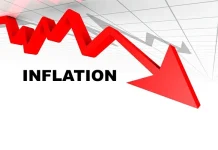🌿 Ruzu Non-Alcoholic Herbal Bitters
Ruzu Non-Alcoholic Herbal Bitters is a natural health supplement specially formulated to:
- ✅ Promote general wellness
- ✅ Detoxify the body
- ✅ Support the treatment of various ailments
Made from a powerful blend of 100% organic and medicinal herbs, Ruzu is completely alcohol-free, making it ideal for:
- 👪 All age groups
- 🌱 Health-conscious individuals
- 🌿 Anyone seeking non-alcoholic herbal remedies
Whether you're looking to boost your vitality, cleanse your system, or support healing the natural way, Ruzu Bitters offers a trusted herbal solution.
Between January and August of 2024, the cost of servicing Nigeria’s foreign debt increased by 107.7% to N3.8 trillion, far above the estimates made in the budget.
This can be found in the Budget Office’s 2025–2027 Medium Term Expenditure Framework and Fiscal Strategy (MTEF & FSP).
According to the report, real spending increased to N3.8 trillion during the same period, resulting in an increase of N1.97 trillion, compared to the initial N1.83 trillion estimated for foreign debt servicing costs in the 2024 budget.
On the other hand, domestic debt servicing only marginally outperformed forecasts, exceeding them by 2%. There was a slight discrepancy of N71 billion between the budgeted amount of N3.53 trillion and actual spending of N3.6 trillion for repaying domestic debt.
Furthermore, N7.41 trillion was allotted for debt servicing during that time, which included interest on FGN bonds for securitized ways and means, sinking funds, and foreign and domestic debt.
However, N5.51 trillion, or 34.4% of the entire planned sum, has already been paid by the government. This demonstrates the increasing strain on public finances since a large amount of government spending is still going toward debt servicing.
Revenue from Sources Other Than Oil
The research states that by August 2024, the Federal Government of Nigeria (FGN) had kept N12.74 trillion, or 73.8% of its annual target of N17.25 trillion. According to the research, the anticipated windfall tax’s delayed implementation—which hasn’t happened yet—was mostly to blame for the divergence.
According to the report, non-oil revenues performed well, reaching an amazing 160.1% of the objective with a total of N3.81 trillion.
The shortfall in oil revenues, which only provided N4.09 billion, was greatly mitigated by this expansion, which represented a 75% performance against the budget plan.
Read Also: Contractors Face Scrutiny as House Committee Decries Akwa Ibom Delays
Additionally, collections of Value Added Tax (VAT) and Corporate Income Tax (CIT) were very strong. The study states that VAT contributed N530.41 billion, beating estimates by 55.1%, and CIT earned N1.71 trillion, surpassing its objective by 74.5%.
The study also reveals that, thanks to increased commercial activity and better collection system efficiency, customs revenues reached N969.89 billion, or 95% of the goal. The government’s finances were further supported by N4.83 trillion from other revenue sources and N2.3 trillion from independent revenue.
Notwithstanding these improvements, the report highlights that oil revenues fell short of expectations because of ongoing issues in the industry, such as output limitations and price volatility.
Revenue from Oil
The research estimates that Nigeria’s gross oil and gas revenue for 2024 will be N20 trillion, but as of August, only N9.83 trillion of the prorated N13.33 trillion had been achieved. This is a performance rate of 72.1%, which is much below what was anticipated.
According to the report, net oil and gas revenue inflows to the Federation Account totaled N8.5 trillion after deductions, including the mandatory 13% derivation for oil-producing states. This is N2.86 trillion, or 25.3% less than the target.
This deficit highlights the difficulties the oil industry faces, such as shifting world oil prices and output limitations.
The report, however, points out that non-oil revenue exceeded projections, surpassing the prorated objective by N3.53 trillion, or a 49.3% gain.
Things you should be aware of
The increase in Nigeria’s foreign debt payment expenses draws attention to the country’s escalating fiscal problems, which could have serious economic repercussions.
The depreciation of the naira and increasing domestic borrowing, frequently at higher interest rates, are two of the reasons why Nigeria’s governmental debt has increased this year.
As previously stated, after the release of updated GDP data, the nation’s debt-to-GDP ratio surpassed 50% for the first time by the end of March 2024.
The cost of servicing external debts, which are paid in foreign currencies, has significantly increased due to the naira’s depreciation, further taxing the public coffers.
















